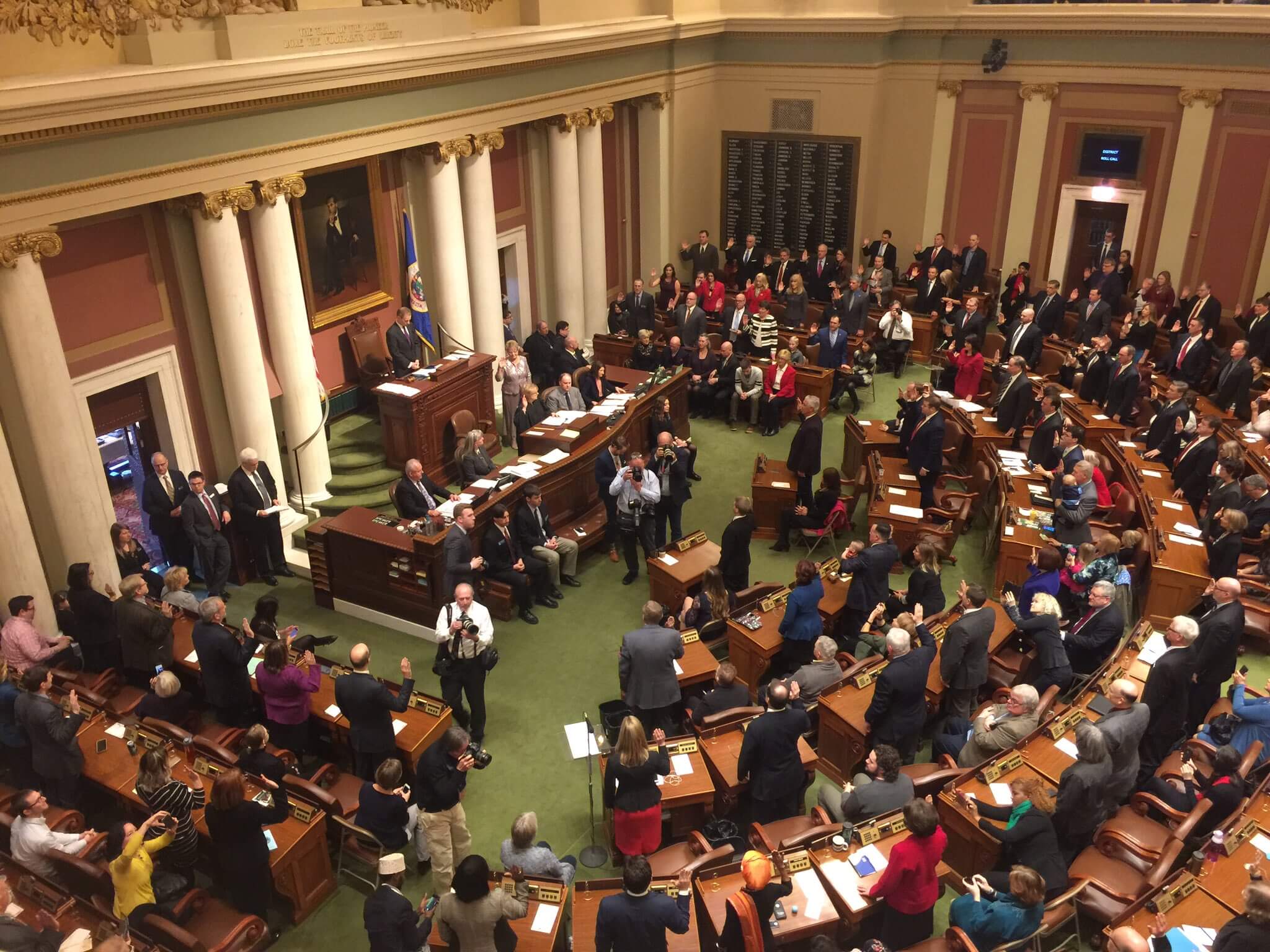 Reading Time: 3 minutes
Reading Time: 3 minutesIt is expected that state legislators will receive the most up-to-date state revenue and spending projections on Feb. 28 from the Minnesota Management and Budget (MMB) office. This report is often referred to as the February Forecast. According to MMB, “The February Forecast helps ensure these proposals remain on track and in balance,” and helps the Governor and the legislature to sculpt their final budget plans. The February Forecast will also be used to guide state tax policy for the next two years.
Since 2017 is a budget year, if the legislature gets nothing else done, according to the state constitution they must have a budget in place before July 1, when the state’s new fiscal year begins. Therefore, this biennial tax and spending plan becomes the Legislature’s largest and most important focus. A state budget consists of large bills that specify state spending for each major issue category. Since there has not been a tax bill passed in the past two years, there’s a lot of focus on the tax committees this session. As such, the tax bill will likely draw a significant amount of attention from various interest groups and the news media.
In last November’s forecast, MMB forecasted slow economic growth for Minnesota in the coming years. It said at the time that legislators would likely have a $1.4 billion positive balance as it works into the next budget biennium, which has created expectations among many interest groups of how to allocate surplus dollars.
Farm Tax Relief
Bipartisan support may be growing for provisions that will reduce the impact of local levies for school construction that fall disproportionately on farm property taxes. These are several legislative proposals to mitigate the impact of school levies and Gov. Dayton has indicated support for a 40-percent tax credit in agriculture property tax levies that are attributed to school construction. This provision was a popular element within last year’s failed tax bill and, at this point in time, we are reasonably optimistic that some level of property tax relief could be part of the larger tax bill. Changes in other taxes are a little more difficult to predict but there are some interesting proposals.
Buffer Legislation
A number of proposals have been made concerning the state’s buffer law, many of which could impact farmer costs. Some proposals would reduce or eliminate property taxes on land converted to buffers.
The Governor’s budget proposal, which was announced a couple weeks ago, includes a $40/acre/year buffer compensation for 5 years. Another proposal would delay enforcement of the buffer law until and unless farmers are fully compensated, either through federal or state funds, for removing land from production to comply with the buffer law. Yet another bill would extend compliance deadlines for two more years and enable greater local control in determining how much land might be subject to the buffer law. And one more would enable farmers to use alternative practices to comply with the buffer law, calling on those alternatives to be determined at later dates.
None of the bills have moved since introduction, because most involve state dollars. Adam Birr, executive director of MCGA recently testified in front of key committees to provide more information and the perspective of Minnesota corn farmers.
University of Minnesota Regents
It is exciting to see two leaders with significant agriculture and food backgrounds getting elected to the University of Minnesota’s Board of Regents. Among the four candidates selected to serve six-year terms, Legislators last Wednesday elected Ken Powell, chairman and CEO of General Mills, and former House Speaker Steve Sviggum.
Sviggum served in the Legislature for almost 30 years and manages his family farm near Kenyon. Powell has been with General Mills since 1979, becoming CEO in 2007 and chairman in 2008. Both will bring great leadership to the University and the schools significant work in support of agriculture.


